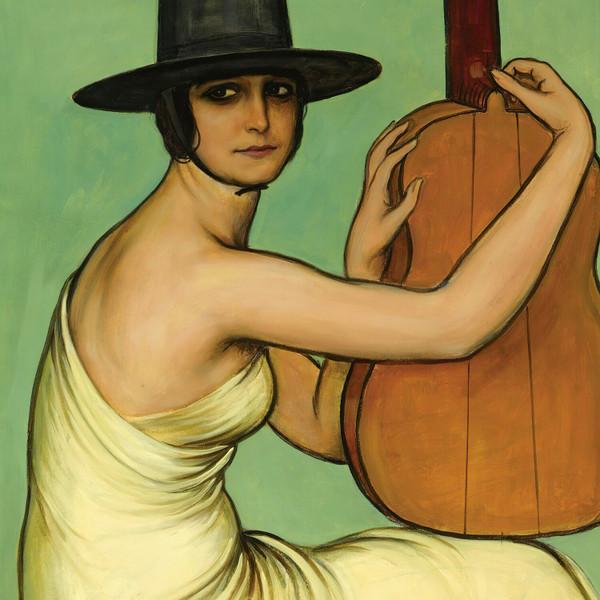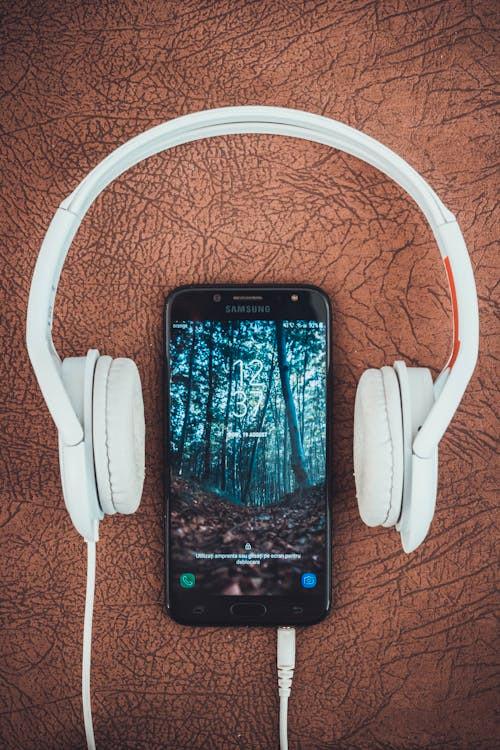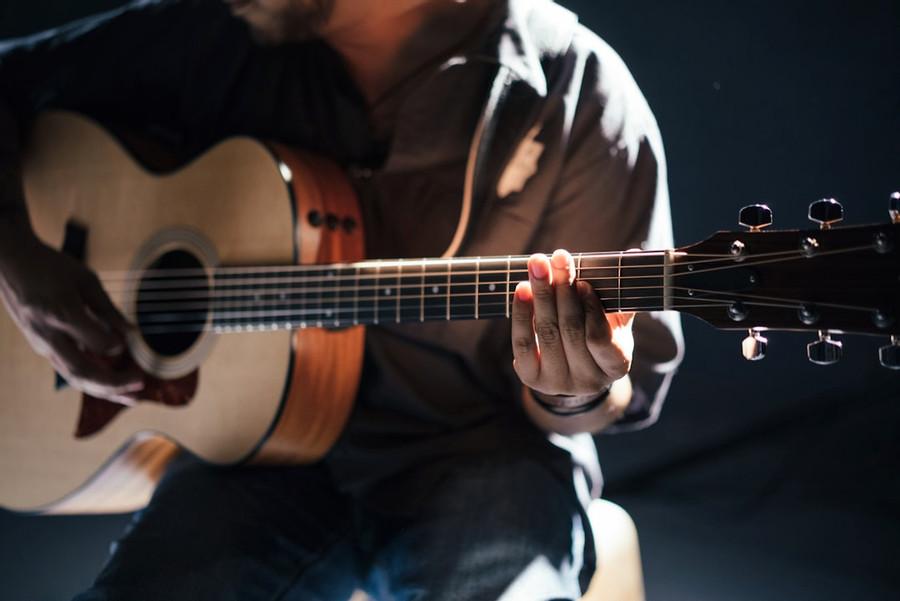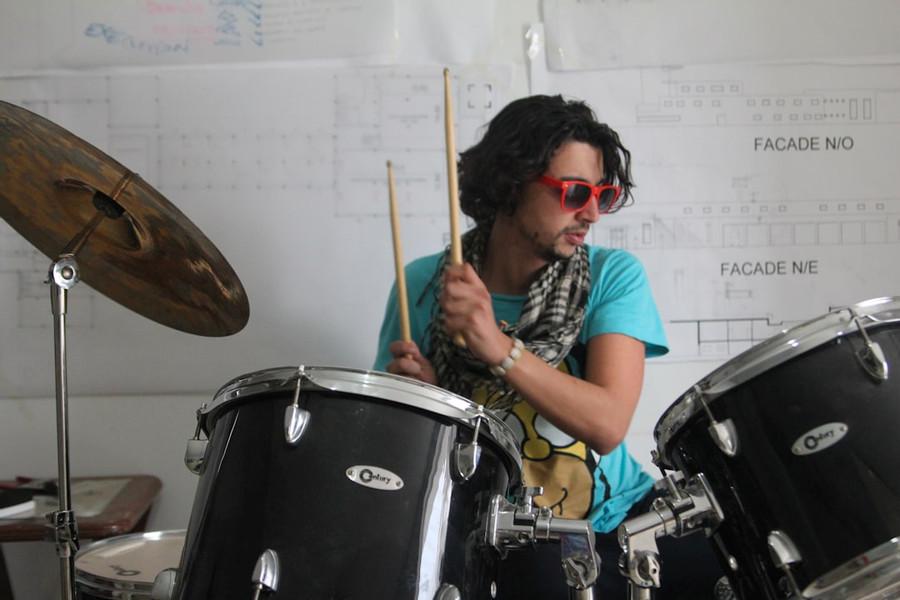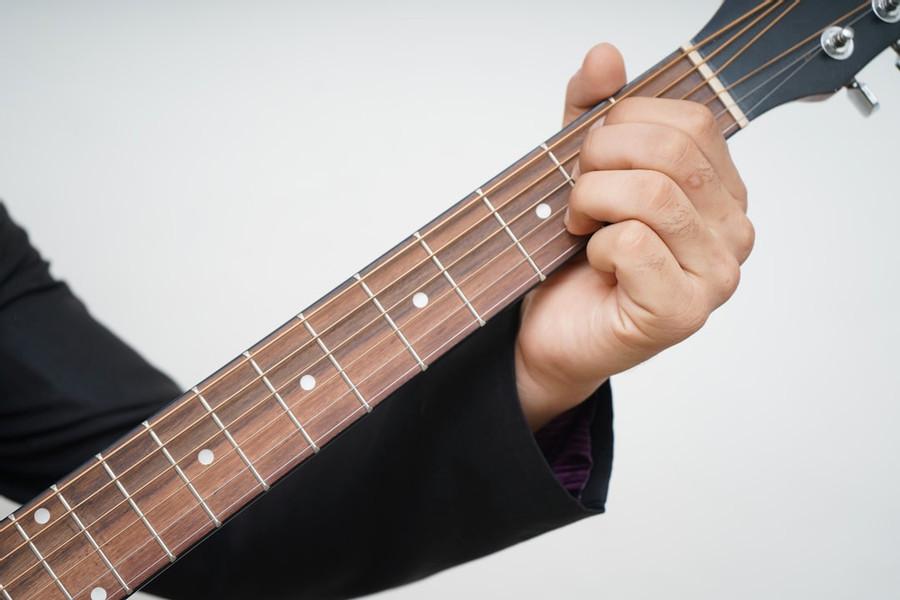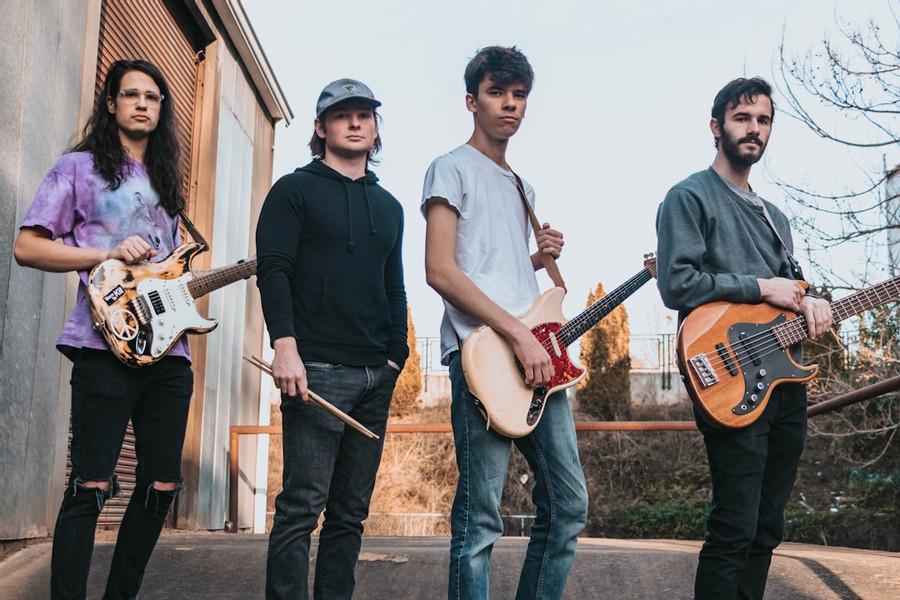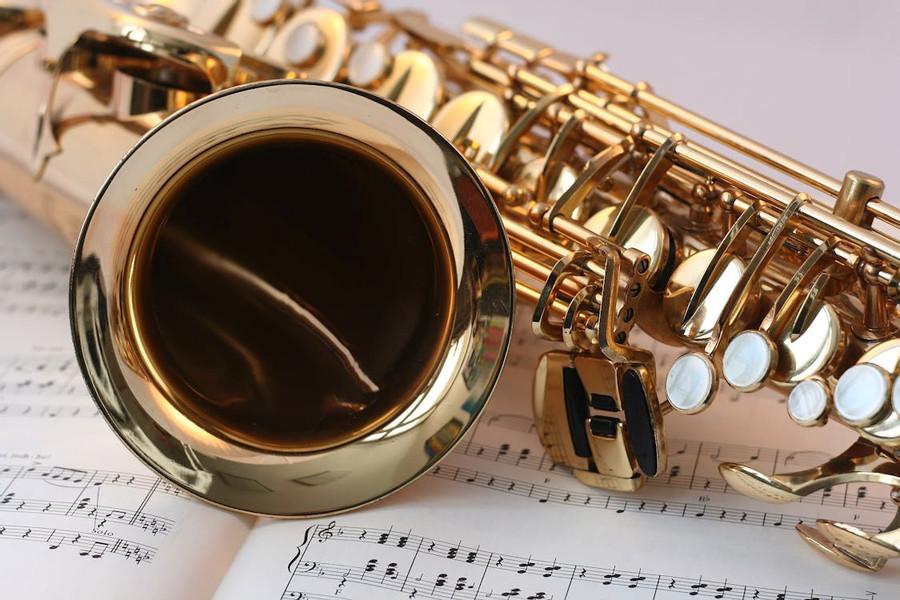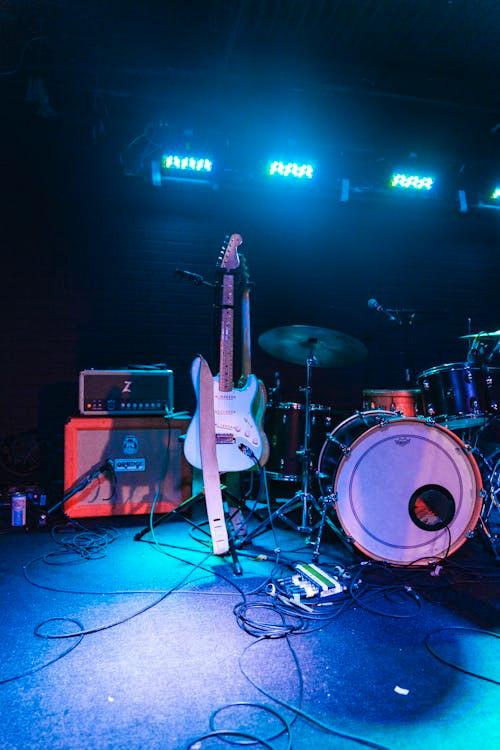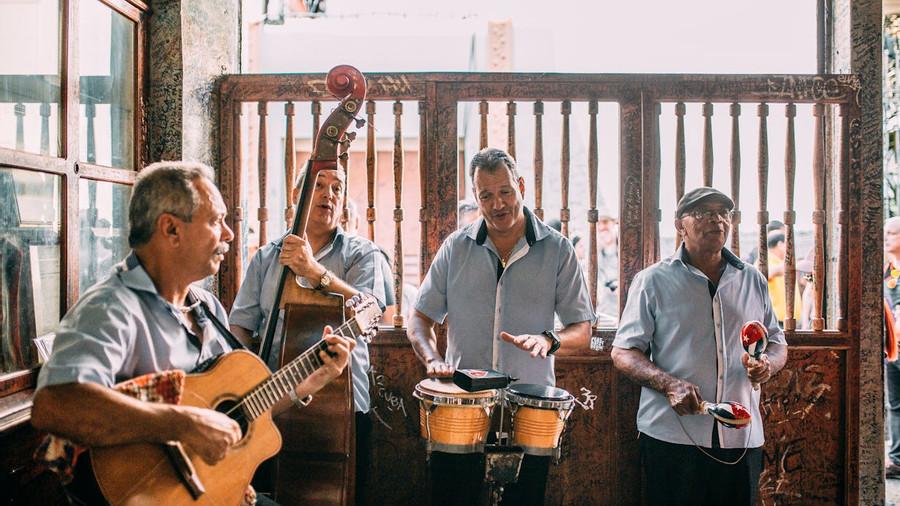How to start making music | Psyche Guides
Curated from: psyche.co
Ideas, facts & insights covering these topics:
18 ideas
·4.4K reads
26
Explore the World's Best Ideas
Join today and uncover 100+ curated journeys from 50+ topics. Unlock access to our mobile app with extensive features.
Our Relationship With Music
If you’ve ever moved to a beat, joined in a chorus or felt your heart quicken to the lyrics of a song, you’ve felt the power of music. That power runs deep in the human experience, and the urge to dive fully into the sounds, to make those sounds and share them, is strong.
Most of us had musical experiences as children, whether it was singing during religious services, taking lessons that our parents supervised, or attending music clubs in school.
But playing music as an adult is different. We have pressing obligations, no supervising parents and fewer opportunities thrust upon us.
61
477 reads
Never Too Late
Those who have the desire to play often fear that they waited too long, that learning music as an adult is just too hard. But it’s never too late. People of all ages have chosen music and are prospering with it. As adults, we have learned how to learn, we value what music has to offer, and we have the patience to watch our abilities and joys compound with time. We might not learn to play as quickly as a teenager would, but we can play with feeling and nuance, and deeply appreciate those we play with.
59
401 reads
The Benefits of Music
Music brings us joy. But what else can it do? It can relax us, offer us solace, and give us a creative outlet. It can deepen our emotional experience, sharpen our hearing, and produce changes in our nervous systems that create a natural high. We’re able to enjoy tapping our feet to a beat because music fires up our neural systems through entrainment – the synchronisation of one’s own rhythms to an external musical rhythm.
61
350 reads
You Can Find Your Own Way to Make Music
Whether you approach music as a child would a playground, as a mathematician would a proof, as a painter would a canvas, or as an athlete would spring training, you can find satisfaction in your pursuit.
This Guide will help you take the first steps as you choose an instrument, learn how to practise, find ways to play with others, and develop techniques to keep moving forward.
Who knows where music might take you? Like all of us, you have music in your genes and in your head. Now you just need to take the next step toward music and follow the path where it leads you.
58
326 reads
Choose an Instrument
Finding an instrument that feels right is your first step. Whether or not you’ve played one in the past, this is a good time to consider what suits you now.
One approach is to follow your feelings. What instruments move you? Which ones draw you in when you’re listening to music? Open your eyes and ears to the instruments you encounter and see if one moves you more than the others.
57
284 reads
The Instrument Which Is Easier To Get And Use
Do your hands, lungs or ears constrain your options? Does your wallet? For many, getting quick results, measured in months rather than years, matters most. In the acoustic world, some instruments yield pleasing results in less time: the ukulele, the drum, the dulcimer, the autoharp, the harmonica. Electric instruments (such as the electric guitar) can be easier on the hands.
Electronic instruments, such as synthesisers and drum machines, offer versatility and a quicker means of getting sounds from your head out into the world.
58
285 reads
Your Role In The Music
Consider who you might be playing with, and what role you want to take on.
Do you see yourself in an orchestra, a jazz band, a folk duo, a rock group, or a choir? Do you want to shine in the limelight, taking solos and basking in that glow, or do you want to support others in the group? Instruments lend themselves to some roles and genres more than others.
Often people think of an instrument as a standalone object. But they really should think of it as part of an ensemble.
58
231 reads
What Singers Do
A singer's body is their instrument, intimate and unique. Your voice will change with time, and how it changes is partly up to you. With the help of a voice teacher, choir director or experienced friend, you can find your voice and develop it. Then you can explore how best to share it.
Many people begin with singing, and then learn an instrument to accompany their voices. Others play an instrument and realise they can learn to sing along with it.
63
268 reads
Expand And Explore
Talk to amateur and professional musicians. Read music blogs. Visit a music store. Listen to live music. Attend a music jam, where you can see how people at different skill levels play informally and improvise together.
Experience instruments in different settings to open your eyes to new possibilities. And if you try one instrument and it doesn’t suit you, don’t give up. Consider it an adventure that can guide you to the next instrument, the one you’ll come to love best.
59
222 reads
Set Goals for Yourself
You could learn to play one chord or scale, learn the lyrics to one song, or get started on one technique. A medium-term goal might be achieved in months. You could take private or group lessons, develop calluses and muscles to extend your practice time, learn to sing in tune, expand your repertoire, or explore a new musical genre. A long-term goal is measured in years.
You might aim to play comfortably with others, learn to read music or play by ear, form a band, perform in public, or record your music.
57
195 reads
Our Rewards And Ambitions Change As We Age
As with other goals we pursue, our musical ambitions can change as we mature. A 20-year-old might hope to make a career with music or to hit it big. A 40-year-old with work deadlines and kitchen duty might be pleased to carve out a few hours a week to play. And a 70-year-old might find that learning new skills and deepening friendships is the richest reward. Your goals can change as you progress with music, too.
58
189 reads
Find out How You Learn Best – and What Will Keep You Going
Do you prefer the privacy of learning in a quiet corner, with no one else listening? Do you like the structure of a class with assignments and deadlines? Do you like the freedom of YouTube instruction? Do you like working with a teacher one on one, and if so, what sort of teacher helps you prosper – someone who’s gently supportive or someone who prods? Someone who is a pro at their instrument or someone who is a mentor and peer? Experiment and see what feels right for you.
60
170 reads
Go Deep In The Online World
Online teachers are now readily accessible for those who face obstacles to working with someone in person. And year-long subscriptions to mass video lessons, audio files and other materials offer a wealth of targeted information and individual feedback from working musicians.
If you have self-discipline and can stay motivated without structure or deadlines, YouTube videos can take you far. You could spend a lifetime exploring online resources for singing, writing songs, playing instruments, and synthesising music.
59
178 reads
Get the Most Out Of Your Practice
After a few weeks of practising how to hold your hands and arms or how to sing a line, you may ask yourself: ‘Isn’t there more to music than this?’ But you’re just like a toddler taking her first steps, not realising that one day those legs will take her anywhere she wants to go.
So pace yourself. Plan to practise as much as you realistically can, whether it’s 15 minutes each evening or several short sessions in a day. Work your way up to longer practices, which will be easier when you’ve developed calluses or muscle strength, and can work on a wider variety of skills.
59
163 reads
Learning Tips
There are many learning resources focused on how to practise. Here are a few basics to get you going:
- include warm-ups to prepare you mentally and physically;
- learn scales, which lay the foundation for understanding how to play a melody line or improvise;
- play slowly while learning a piece to help you play it cleanly;
- focus on sections that give you trouble rather than playing an entire piece repeatedly;
- practise in shorter and more frequent sessions for best results; and
- incorporate mental practice into your routine (here’s why and how).
62
197 reads
Find Others To Play With
When we’re new to an instrument and fumbling to make satisfying sounds, it’s more comfortable to make them in private. But some teachers argue that playing with others early is the key to learning and to sticking with it. Why? Because you’ll learn what you need to work on, experience moments of connection that keep you going, meet people who can help you, as well as get inspired and avoid the rut that can come from exclusively playing by yourself.
57
146 reads
Resources for Finding Others Abound
Music stores and centres commonly offer group classes that focus on different instruments and genres. Community orchestras often cultivate newcomers. Many churches, synagogues and other places of worship bring their congregants together with music and welcome members to sing, chant or play instruments during services.
You can find local jams in both rural and urban areas through online platforms like Meetup, and it’s easy to play quietly at the beginning as you learn how to play by ear.
56
139 reads
Joining A Music Camp
Camps offer different genres, levels and learning styles, whether the focus is on jazz, folk, roots, bluegrass, orchestra, rock, singing, songwriting or other subjects. But no matter which camp you attend, you’ll be offered camaraderie, meals, late-night jams, concerts, inspiring teachers who might be the best in their genre, and a big boost of musical adrenaline.
56
182 reads
IDEAS CURATED BY
"Yeah, I'm a thrill seeker, but crikey, education's the most important thing. " ~ Steve Irwin
CURATOR'S NOTE
Get set: Play!
“
Jenna Sanderson's ideas are part of this journey:
Learn more about music with this collection
Effective note-taking techniques
Test-taking strategies
How to create a study schedule
Related collections
Similar ideas
Read & Learn
20x Faster
without
deepstash
with
deepstash
with
deepstash
Personalized microlearning
—
100+ Learning Journeys
—
Access to 200,000+ ideas
—
Access to the mobile app
—
Unlimited idea saving
—
—
Unlimited history
—
—
Unlimited listening to ideas
—
—
Downloading & offline access
—
—
Supercharge your mind with one idea per day
Enter your email and spend 1 minute every day to learn something new.
I agree to receive email updates
